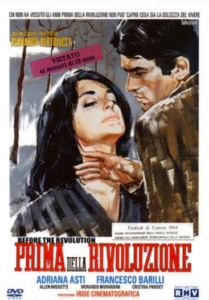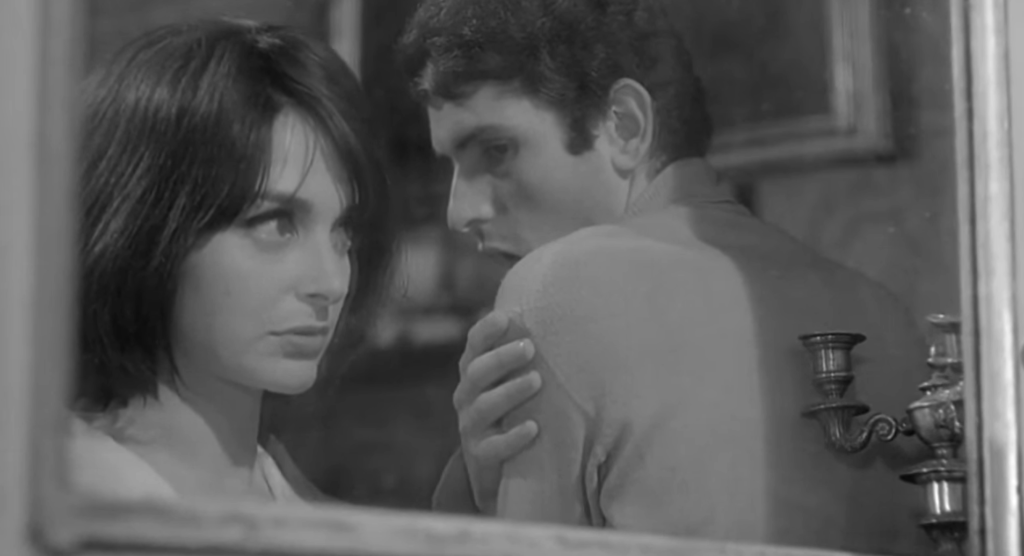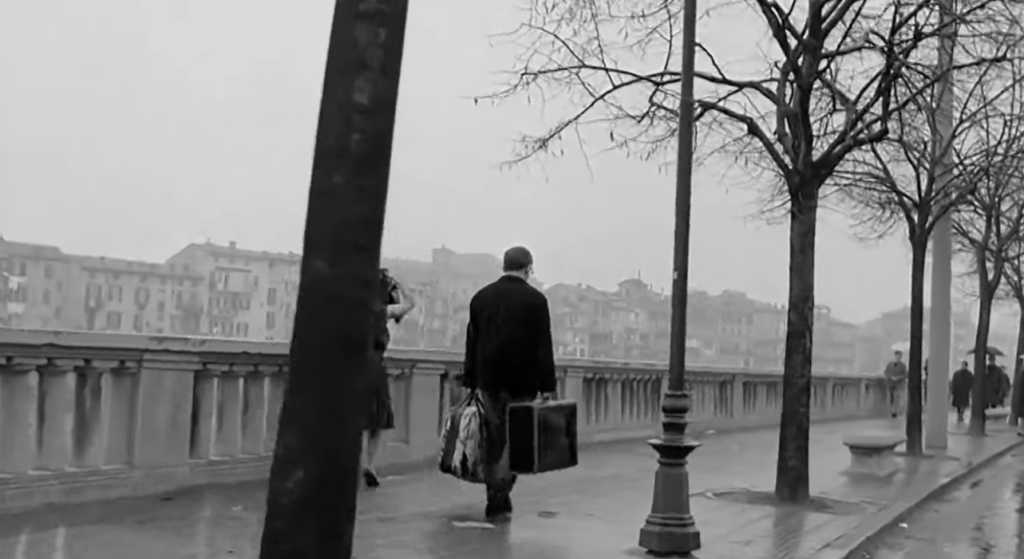Before the Revolution (1964)
“It’s terrible to think how near to death the living are.”
|
Synopsis: |
|
Genres, Themes, Actors, and Directors:
Review: … and Asti coming across as merely a wide-eyed, tortured cipher. While this film is lauded in 1,001 Movies You Must See Before You Die as an “astonishing” “elegy for those bourgeois lives doomed because they take place before the revolution,” showcasing “a perfect portrait of the generation who were to embrace revolt in the late 1960s,” most modern (non-Italian) viewers won’t have a good sense of which revolution is being referred to, or why any of this much matters. Notable Performances, Qualities, and Moments: Must See? (Listed in 1001 Movies You Must See Before You Die) Links: |



One thought on “Before the Revolution (1964)”
First viewing (1/6/21). Not must-see, but those who like Bertolucci films will want to give it a look.
I’ve known of this title for *years* but until now I’ve always had a little difficulty tracking it down (without actually buying it).
Aside from everything else, it’s a rather impressive work for someone who was 22 (!) at the time. It’s perhaps most effective if seen as a character study and, as such, it’s cohesive. I had read very little about the film before seeing it but, knowing a number of Bertolucci’s later films, I’d imagined it might be something fairly complex. Well, it is… in some of its ideas but, overall, as a film it’s rather simple.
It’s aided immensely by DP Aldo Scavarda’s extremely attractive camerawork as well as Ennio Morricone’s score.
I don’t quite think it’s the masterpiece that, over the years, some have called it. (It doesn’t have to be.) But neither do I think it’s the anti-cinematic polemic that others may see it as. I found it fairly engaging throughout.